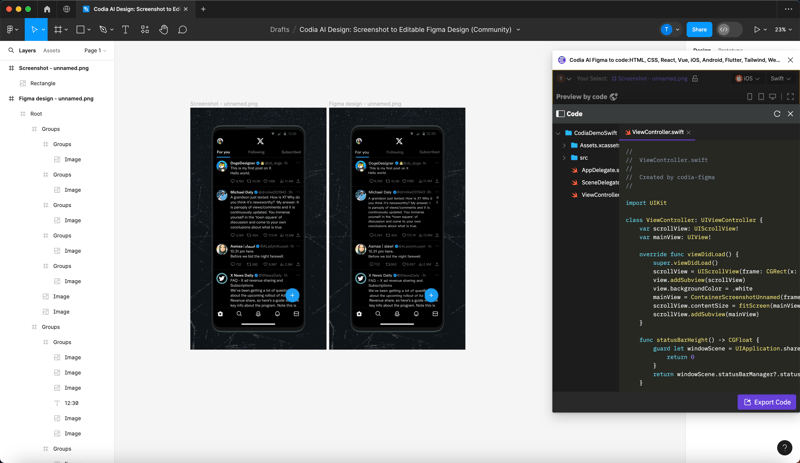1. Preface
In modern C++ programming practices, performance optimization is a crucial area. As the C++ language continues to evolve, it provides developers with an increasing array of tools and features to better control program performance. However, these powerful features also bring additional complexity, making performance optimization a task that requires careful consideration. While pursuing code efficiency, developers must be vigilant against traps that may lead to performance degradation.
This article will delve into some common issues that C++ engineers may encounter while performing performance optimizations and provide corresponding solutions. We will start with the problem of abusing std::shared_ptr and discuss how to use smart pointers correctly to reduce performance overhead. Next, we will discuss the performance costs of type-erasure tools std::function and std::any, and how to use them only when necessary. The article will also cover improper use of std::optional and std::string_view, pitfalls of std::async, and misuse of std::move, among other issues.
Additionally, we will discuss the impact of hidden copies and destruction on performance, the performance overhead of virtual functions, unnecessary copying caused by structured bindings, and the importance of tail recursion optimization. New features introduced in C++20, such as concepts and constraints, coroutines, std::span, and modules, will also be examined to ensure they are used appropriately and do not become a burden on performance.
Through this article, we hope to help C++ developers better understand and address the challenges in performance optimization, thereby writing code that is both efficient and robust.
2. Misusing std::shared_ptr
Problem Description:
std::shared_ptr provides a convenient reference counting mechanism, but its construction, copying, and destruction all involve atomic operations, which can be costly in terms of performance.
Solution:
- Prefer
std::unique_ptrwhenever possible, and usestd::shared_ptronly when shared ownership is truly needed. - Use
std::make_sharedto constructstd::shared_ptrinstances to reduce the number of memory allocations.
Code Example:
// Using std::unique_ptr
std::unique_ptr<MyClass> ptr1 = std::make_unique<MyClass>();
// Using std::shared_ptr
std::shared_ptr<MyClass> ptr2 = std::make_shared<MyClass>();
3. Type Erasure: std::function and std::any
Problem Description:
std::function and std::any provide flexible type-erasure capabilities, but they also come with performance costs.
Solution:
- Use
std::functionandstd::anyonly when you need to store functions or objects of uncertain types. - Consider using templates and static polymorphism as an alternative to
std::function.
Code Example:
// Using std::function
std::function<void(int)> func = [](int value) { /* ... */ };
// Using templates and static polymorphism
template <typename Callable>
void callFunction(Callable&& func, int value) {
func(value);
}
4. Improper Use of std::optional
Problem Description:
std::optional can lead to performance issues, especially when the contained type has significant construction, copying, or moving costs.
Solution:
- Use
std::optionalonly when you need to represent an optional value. - Consider returning an empty container or a special value to represent a "no value" situation.
Code Example:
// Using std::optional
std::optional<std::vector<int>> getOptionalVector(bool condition) {
if (condition) {
return std::vector<int>{1, 2, 3};
}
return std::nullopt;
}
5. std::string_view Lifetime Issues
Problem Description:
std::string_view does not own the string it refers to; if the original string is released or modified, std::string_view may refer to invalid memory.
Solution:
- Ensure the lifetime of
std::string_viewdoes not exceed that of the string it references. - Be particularly mindful of ownership and lifetime issues when using
std::string_view.
Code Example:
std::string_view getStringView() {
std::string str = "Hello, World!";
return std::string_view(str); // Dangerous: str is destroyed after the function returns
}
6. Pitfalls of std::async
Problem Description:
std::async may lead to unexpected synchronous calls; if the returned std::future object is not saved, its destructor will wait for the asynchronous operation to complete, causing the code to execute synchronously.
Solution:
- Save the
std::futureobject returned bystd::asyncto ensure asynchronous execution.
Code Example:
// Correct use of std::async
auto future1 = std::async(std::launch::async, []() { /* ... */ });
auto future2 = std::async(std::launch::async, []() { /* ... */ });
7. Misusing std::move
Problem Description:
In some cases, misusing std::move is not only unhelpful but may also lead to performance degradation. Particularly in scenarios where (Named Return Value Optimization) NRVO might be triggered, using std::move can result in additional copy or move operations.
Solution:
- Use
std::moveonly when you need to transfer ownership. - Avoid using
std::movewhen returning local objects.
Code Example:
// Avoid misusing std::move
MyClass createObject() {
MyClass obj;
// ... modify obj ...
return obj; // Do not use std::move
}
8. Hidden Copies
Problem Description:
Object copying in C++ can lead to performance issues, especially in the following scenarios:
- Constructors not using initializer lists or not using
std::move. - Range-based for loops not using references.
- Lambda expressions capturing by value without using
std::moveor capturing by reference. - Implicit type conversions leading to unnecessary copies.
Solution:
- Use initializer lists and
std::moveto avoid unnecessary copies. - Use references in range-based for loops.
- Use reference capture or
std::movein lambda expressions.
Code Example:
// Using initializer lists and std::move
class MyClass {
std::vector<int> data;
public:
MyClass(std::vector<int>&& d) : data(std::move(d)) {}
};
// Avoiding copies by using references
std::vector<std::string> vec;
for (const std::string& s : vec) {
// ...
}
// Using reference capture or std::move
std::string str = "example";
auto lambda = [&str]() { /* ... */ };
auto lambda_move = [s = std::move(str)]() { /* ... */ };
9. Hidden Destruction
Problem Description:
Destruction of complex types can be very time-consuming. If an object's destructor takes a long time to execute, it can inadvertently add to the function's execution time.
Solution:
- Avoid creating and destroying complex objects on the hot path.
- Use object pools to manage the lifecycle of complex objects.
Code Example:
// Assuming ComplexType is a type with significant destruction overhead
class ComplexType {
// ...
public:
~ComplexType() { /* ... */ }
};
// Using object pools
class ComplexTypePool {
std::list<ComplexType> pool;
public:
ComplexType& acquire() {
if (pool.empty()) {
pool.emplace_back();
}
auto& obj = pool.front();
pool.pop_front();
return obj;
}
void release(ComplexType& obj) {
pool.push_back(std::move(obj));
}
};
10. Virtual Functions
Problem Description:
Virtual functions provide the ability for runtime polymorphism, but they come with additional performance overhead:
- Extra addressing operations: the specific function address needs to be found through the virtual function table.
- Disrupting the CPU pipeline: virtual function calls are indirect calls, which require branch prediction.
- Hindering compiler inlining: in most cases, virtual functions cannot be inlined.
Solution:
- When polymorphism is not a necessity, consider using non-virtual member functions.
- Use templates and static polymorphism (such as CRTP) to replace runtime polymorphism.
Code Example:
// Traditional polymorphism using virtual functions
class Base {
public:
virtual void doWork() { /* ... */ }
virtual ~Base() {}
};
class Derived : public Base {
public:
void doWork() override { /* ... */ }
};
// Static polymorphism using CRTP
template <typename Derived>
class BaseCRTP {
public:
void doWork() {
static_cast<Derived*>(this)->doWorkImpl();
}
};
class DerivedCRTP : public BaseCRTP<DerivedCRTP> {
public:
void doWorkImpl() { /* ... */ }
};
11. Unnecessary Copies with Structured Bindings
Problem Description:
C++17 introduced structured bindings, which allow you to conveniently unpack tuples or structures. However, if not careful, structured bindings can lead to unnecessary object copying.
Solution:
- Use references to avoid copying, for example,
auto& [x, y] = my_pair;.
Code Example:
std::pair<int, std::vector<int>> getPair() {
return {1, {1, 2, 3}};
}
// May cause copying
auto [id, vec] = getPair();
// Using references to avoid copying
auto& [id_ref, vec_ref] = getPair();
12. Tail Recursion Optimization
Problem Description:
Tail recursion optimization can reduce the stack space usage of recursive functions, but hidden operations in C++ (such as destruction) may hinder this optimization.
Solution:
- Use trivially destructible objects, such as
std::string_view, to help the compiler implement tail recursion optimization.
Code Example:
// Implementing tail recursion optimization with std::string_view
unsigned btd_tail(std::string_view input, int v) {
if (input.empty()) {
return v;
} else {
v = v * 2 + (input.front() - '0');
return btd_tail(input.substr(1), v);
}
}
13. Misuse of Concepts and Constraints
Problem Description:
C++20 introduced concepts and constraints, which provide a more powerful way to specify template parameter requirements. However, overly complex concepts and constraints can increase compilation time and make error messages difficult to understand.
Solution:
- Use concepts and constraints only when you need to clearly express interface requirements.
- Avoid creating overly complex concepts; keep them simple and clear.
Code Example:
template<typename T>
concept Addable = requires(T a, T b) {
{ a + b } -> std::convertible_to<T>;
};
// Using concepts
template<Addable T>
T add(T a, T b) {
return a + b;
}
14. Improper Use of Coroutines
Problem Description:
C++20 introduced coroutines, which are a powerful tool for asynchronous programming. However, improper use of coroutines can lead to performance issues, such as excessive coroutine switching causing performance degradation.
Solution:
- Use coroutines in I/O-intensive or asynchronous operation scenarios.
- Avoid frequent starting and suspending of coroutines in performance-critical code paths.
Code Example:
std::future<int> asyncComputation() {
co_return 42; // Simplifying asynchronous operations with coroutines
}
15. Improper Use of std::span
Problem Description:
std::span is a lightweight container view introduced in C++20, providing access to a contiguous region of an array or container. However, if the original data is released or modified, std::span may refer to invalid memory.
Solution:
- Ensure the lifetime of
std::spandoes not exceed that of the data it references. - Be particularly mindful of ownership and lifetime issues when using
std::span.
Code Example:
std::span<int> getSpan(std::vector<int>& vec) {
return std::span<int>(vec); // Ensure the vec's lifetime is long enough
}
16. Improper Use of Modules
Problem Description:
C++20 introduced modules, intended to replace the traditional header and source file model, improving compilation efficiency. However, improper module partitioning can lead to increased compilation time, especially when there are complex dependencies between modules.
Solution:
- Reasonably partition modules to avoid over-segmentation.
- Manage dependencies between modules well to reduce unnecessary imports.
Code Example:
// my_module.cppm
export module my_module;
export int add(int a, int b) {
return a + b;
}
// Using modules
import my_module;
int result = add(1, 2);
17. Developing any platform from Scratch with Codia AI Code
To integrate Codia AI into your Figma to any platform such as frontend, mobile, and Mac development process, follow these instructions:
Open the link: Codia AI Figma to code: HTML, CSS, React, Vue, iOS, Android, Flutter, ReactNative, Tailwind, Web, App
- Install the Codia AI Plugin: Search for and install the Codia AI Figma to Flutter plugin from the Figma plugin store.
- Prepare Your Figma Design: Arrange your Figma design with clearly named layers and components to ensure the best code generation results.
- Convert with Codia AI: Select your design or component in Figma and use Codia AI to instantly
generate any platform code.





















